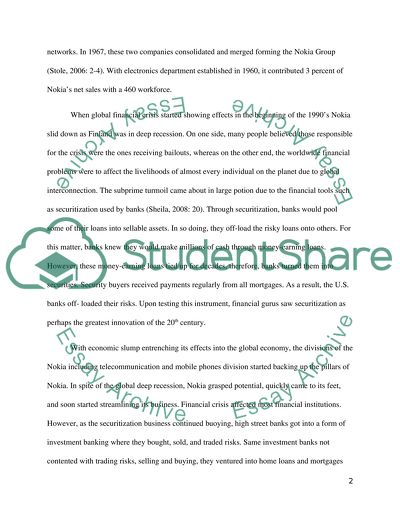Cite this document
(“Global financial crisis and its effects on Nokia Company Assignment”, n.d.)
Retrieved from https://studentshare.org/macro-microeconomics/1396393-global-financial-crisis-and-its-effects-on-nokia-company
Retrieved from https://studentshare.org/macro-microeconomics/1396393-global-financial-crisis-and-its-effects-on-nokia-company
(Global Financial Crisis and Its Effects on Nokia Company Assignment)
https://studentshare.org/macro-microeconomics/1396393-global-financial-crisis-and-its-effects-on-nokia-company.
https://studentshare.org/macro-microeconomics/1396393-global-financial-crisis-and-its-effects-on-nokia-company.
“Global Financial Crisis and Its Effects on Nokia Company Assignment”, n.d. https://studentshare.org/macro-microeconomics/1396393-global-financial-crisis-and-its-effects-on-nokia-company.


